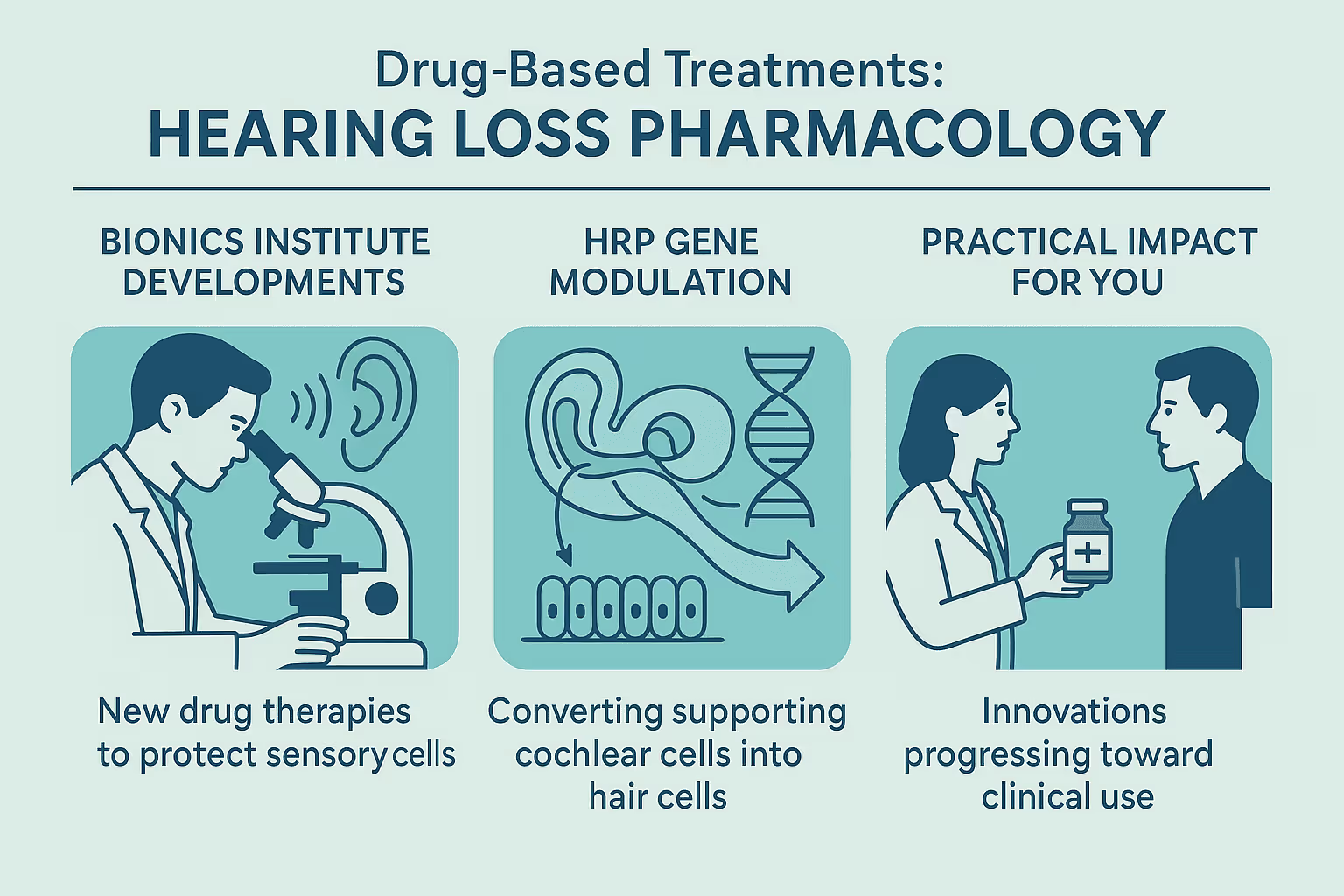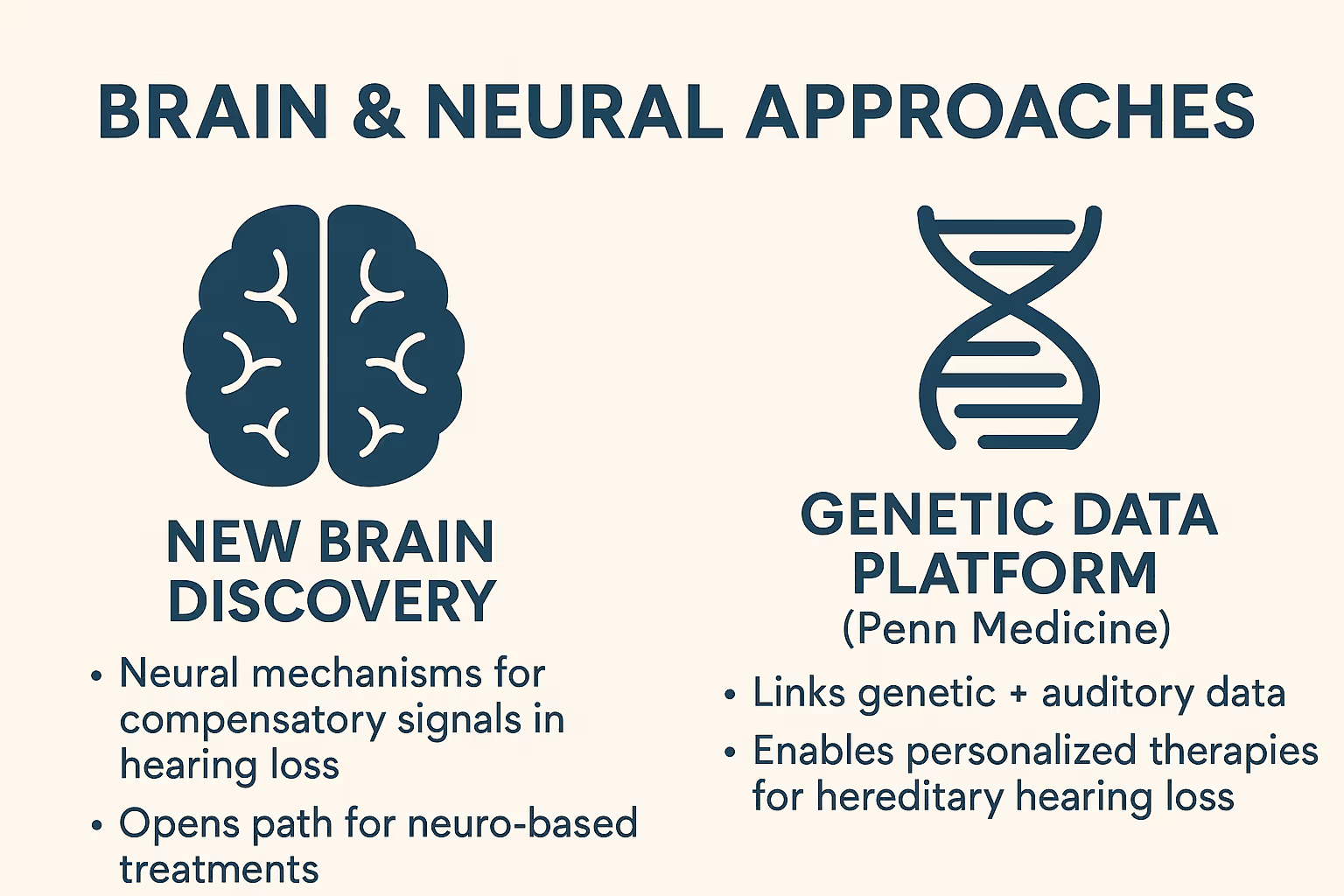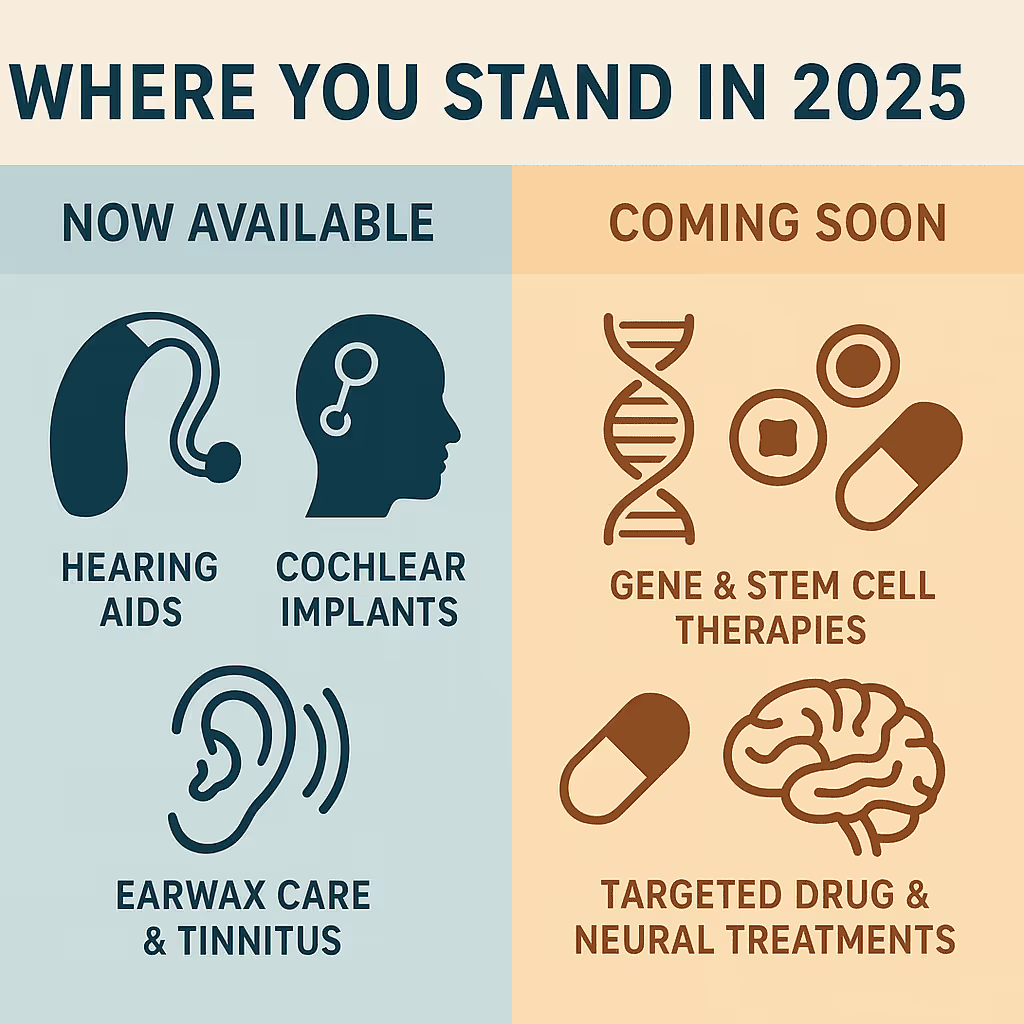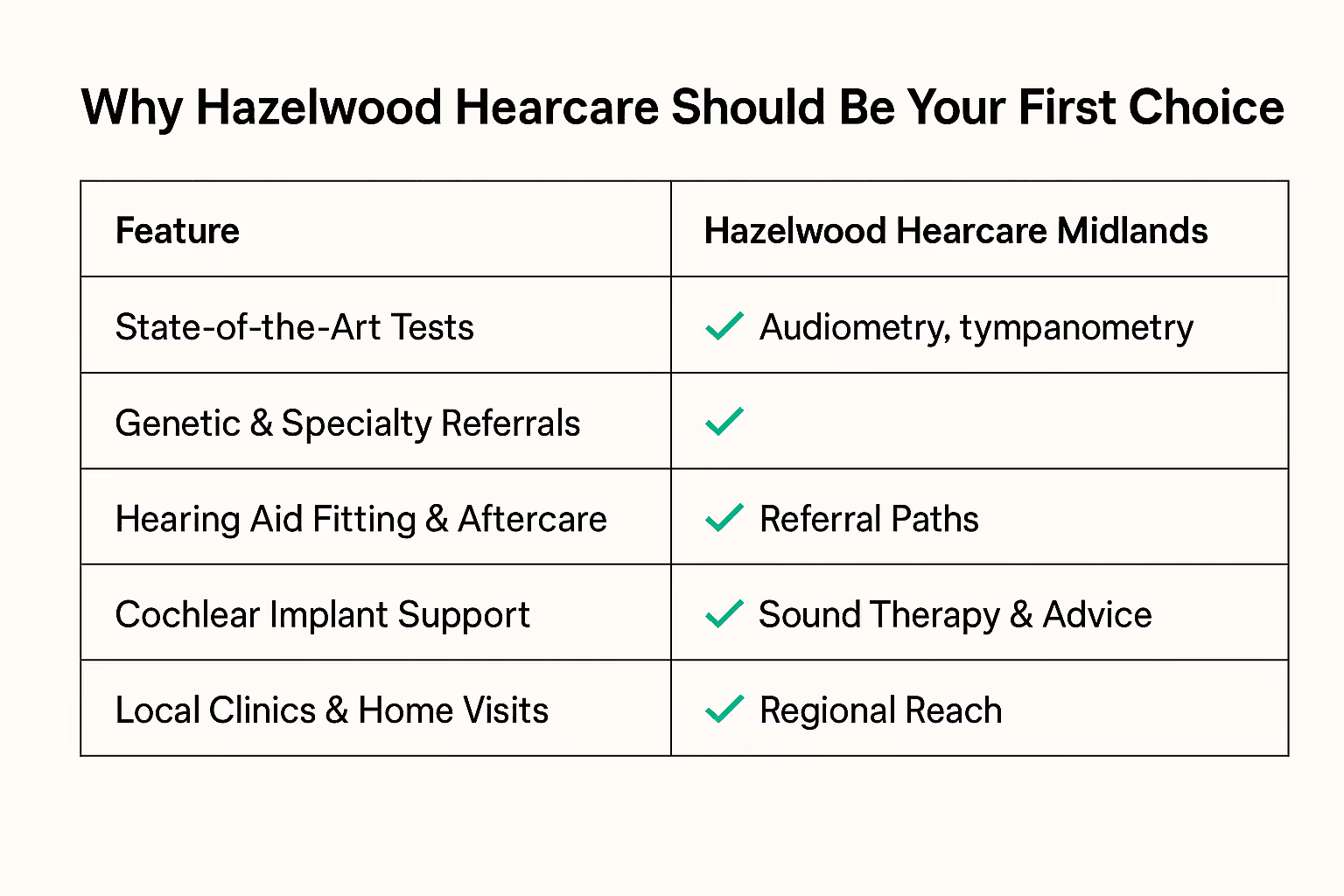.jpg)
Hearing loss affects millions and with advancements in science, 2025 is emerging as a breakthrough year. From gene and stem cell therapies to novel drugs and brain-level interventions, this article breaks down what’s on the horizon—and what’s available now for residents in Leamington Spa, Mount Sorrel, Loughborough, Derby, Matlock, Crick, Rugby, Daventry, and beyond.

Researchers celebrated major progress in gene therapy for heredity-linked hearing disorders on World Hearing Day. Notable trials focus on otoferlin (OTOF) gene mutations that cause congenital deafness.
A single gene therapy injection helped children and adults with congenital OTOF mutations regain significant hearing within weeks dramatic improvements seen even in adults
While these therapies target rare genetic conditions, they pave the way for broader applications. Hazelwood Hearcare monitors these trials closely, and you can ask about genetic screening during your next appointment.

Labiotech reports rising optimism around inner ear stem cell therapy Companies like Rinri Therapeutics are working on cell transplants (e.g., Rincell-1) to regenerate cochlear hair cells and auditory neurons
A UK-led surgical breakthrough gives safe access to the cochlea, enabling future regenerative therapies—great news for Midlands patients hoping for cutting-edge treatment
Stem-cell-based hearing restoration remains in early-stage development (2025–2030) but is gaining momentum. For now, affordable options within reach include hearing aids or cochlear implants—available at Hazelwood Hearcare regional clinics.

Promising new drug therapies targeting sensory cell protection are emerging, aiming to preserve hearing after injury
Harvard’s HRP team is studying the conversion of supporting cochlear cells into functional hair cells using targeted therapies
While not yet in high-street pharmacies, these innovations are heading toward clinical use. Hazelwood Hearcare’s role will be vital in prescribing and managing such treatments locally in the future.

ScienceDaily reports exciting findings on neural mechanisms—how the brain processes compensatory signals in hearing loss, leading to potential neuro-based treatments .
The Penn platform linking genetic and auditory data could soon enable highly personalized therapies for hereditary hearing loss .

Not everyone views genetic "cures" as universally beneficial. The deaf community emphasizes identity and inclusiveness alongside medical advances .

Now Available:


Q: Are gene therapies available in the UK yet?
A: No, but UK trials are in progress. We're practicing "watch and wait" for OTOF-based therapies.
Q: How long before stem cell cures are accessible?
A: Typically 5–10 years awaiting clinical trials and safety data.
Q: What’s the best approach now?
A: Start with modern hearing aids or implants. Protect your ears and consider genetic testing if appropriate.
Whether you're near Leamington Spa, Mount Sorrel, or Daventry, don’t wait.
🔗 Explore regional hubs:
While widespread cures aren’t here yet, gene and stem cell therapies are proving real results for specific genetic hearing losses. Drug and neural therapy development continues—while modern hearing technology offers immediate, practical solutions.
Hazelwood Hearcare connects cutting-edge science with local care—ensuring today’s treatments and preparing you for tomorrow’s breakthroughs.
Let us guide you to better hearing—call, book, or visit today.
Sources:
Let me know if you’d like keyword tags, a shorter version, or individual county spin-offs!